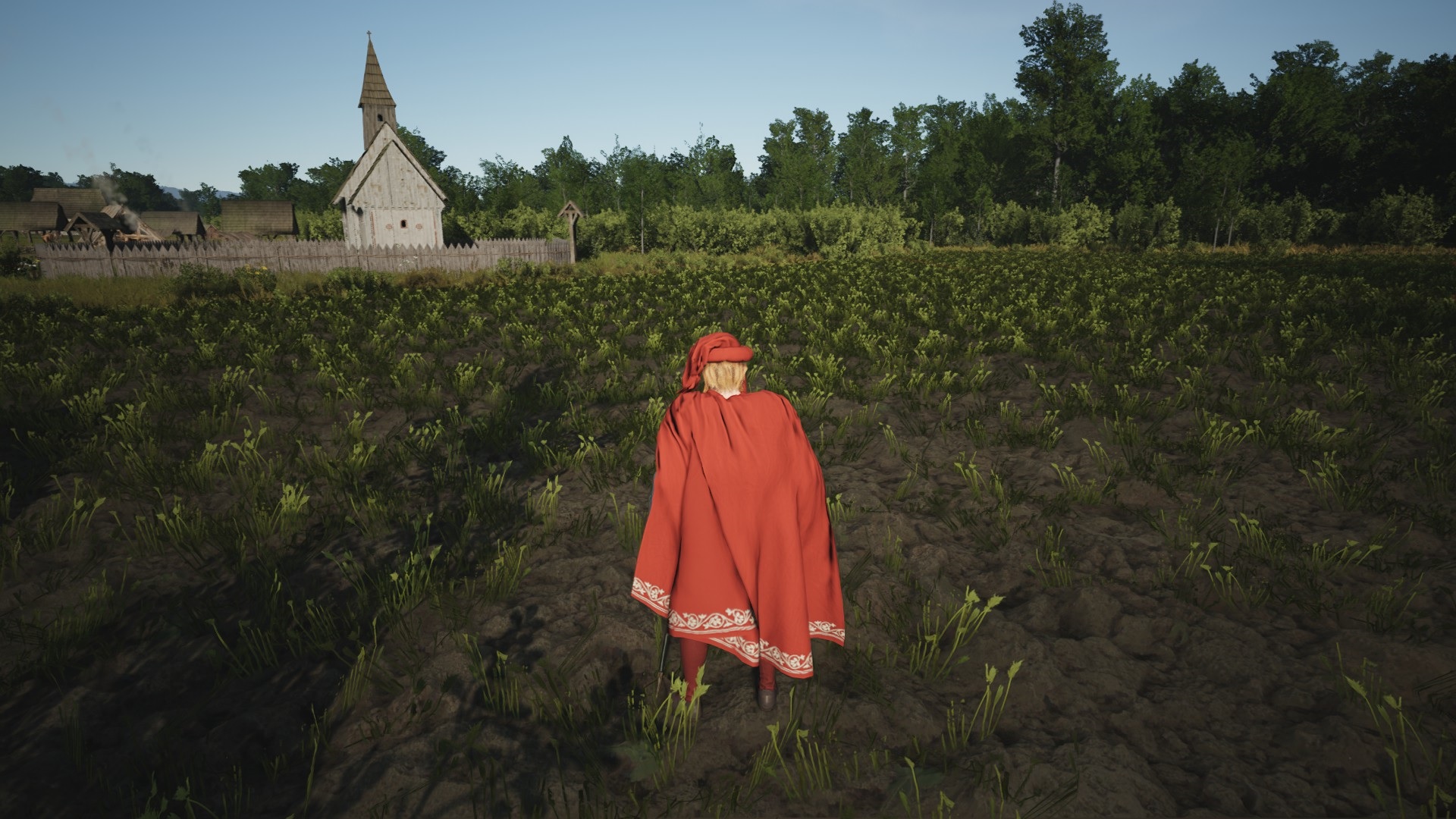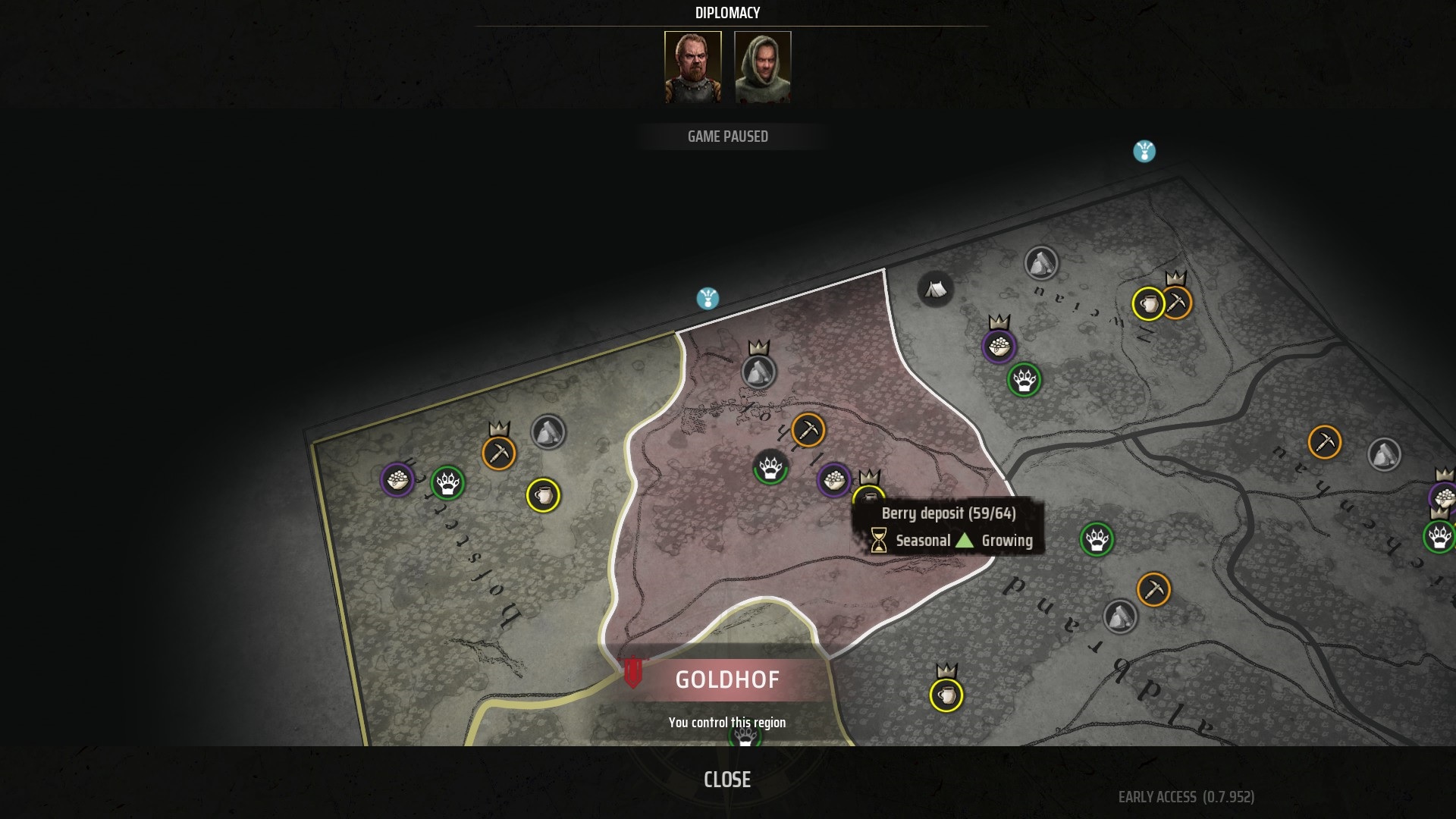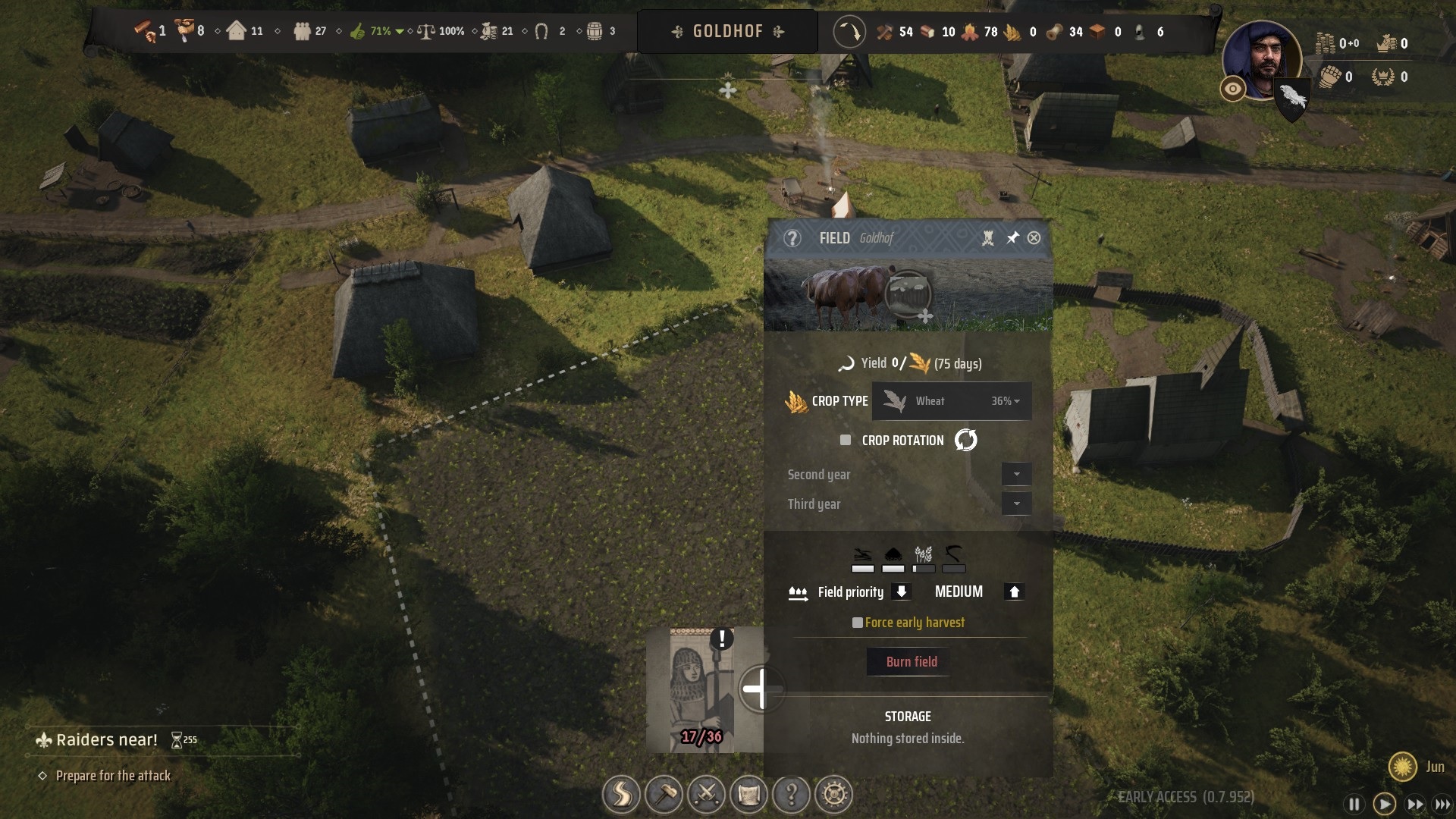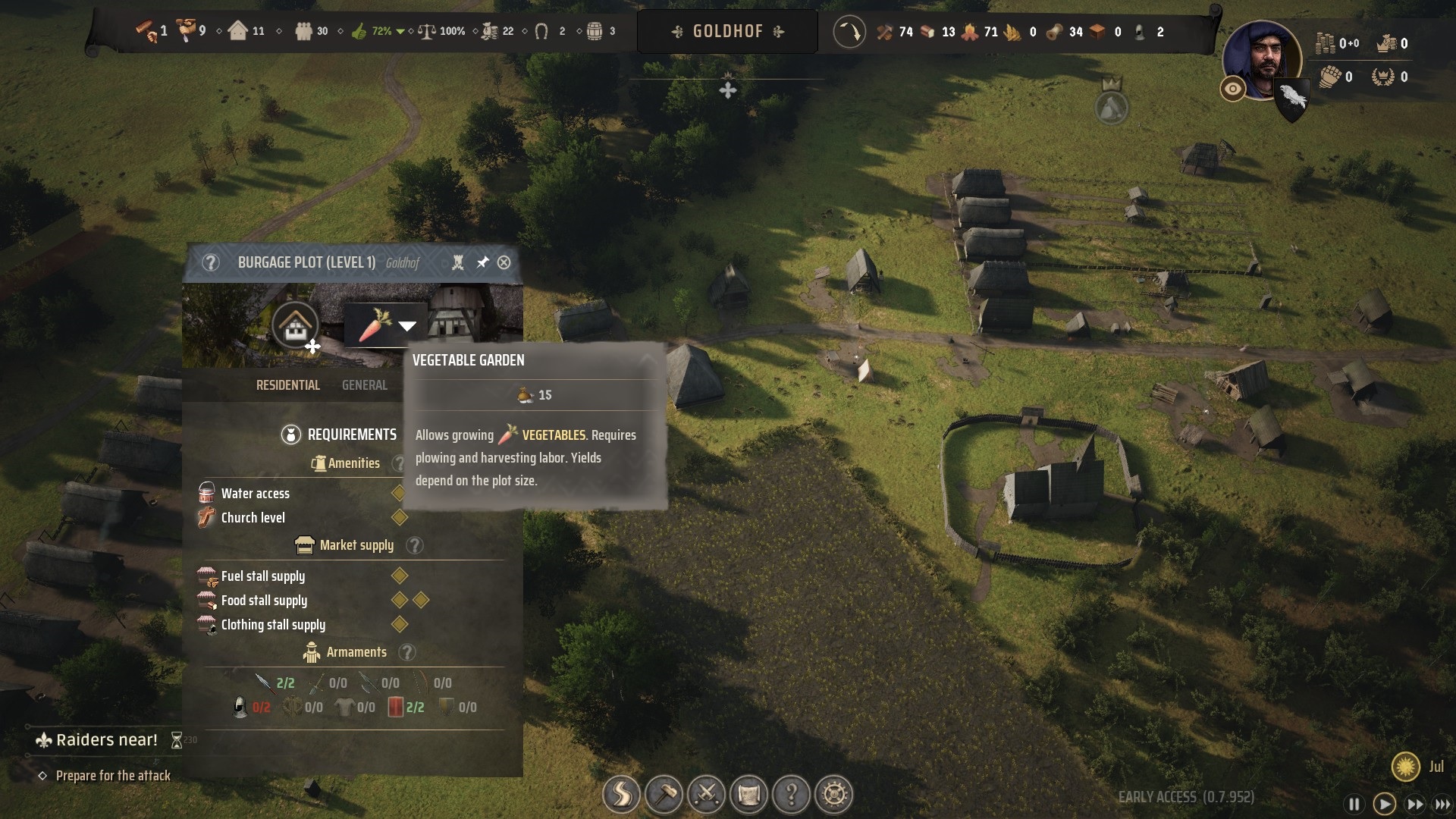
An army marches on its stomach. Maybe it was Napoleon Bonaparte that said it, maybe not. No matter what, it's true.
Securing steady sources of food in Slavic Magic's medieval simulator Manor Lords will be absolutely critical. Large quantities of food are needed in order to keep your denizens happy and to ensure steady population growth, as well as making everyone comfortable after hard-fought battles to secure your lands. This isn't easy when you're just starting out, however, and a lot of gameplay mechanics can be confusing if it's your first time through. Here's what you need to know about how to get food in Manor Lords.
How to build up food supply in Manor Lords

Your options are going to be fairly limited when you're first starting out. I recommend immediately building a Hunting Camp and a Forager Hut as you get your village underway. While they can employ up to two and four families, respectively, you just need one family on each to start. These camps will allow two families to bring back some meat and berries, which will be enough to sustain a smaller population until you grow significantly. You can scroll out to easily check the remaining numbers of animals and berries that are available to hunt and gather at any given time.
Next up, you need to get your Farms figured out. Until your population grows, it's best to start with a lone farm being worked by two or three families. Be sure to check the soil overlay before placing the farm, as this'll improve your starting batches of crops for the first couple of years. Crop Rotation is an absolute must, and I've had a lot of success following this pattern: Year 1 - Wheat, Year 2 - Barley, Year 3 - Fallow. The process then repeats, with the Fallow year allowing the soil to rest and rejuvenate.

As your population grows, you can add additional families to the Farmhouse. Once you have four or more families working the fields, I recommend creating your second farm. Make sure to do start this cycle at least a year off from your first farm. This spreads the crop rotations out, ensuring that you're always harvesting something and that you don't have years where no wheat is being produced at all.
Don't forget that you'll also need a Windmill and Communal Oven, which turns the grain into flour and bakes the flour into bread, respectively. This is absolutely vital, as the food produced from a good harvest can last for several months, if not an entire year.
Some other great ways to provide supplementary food include expanding the Burgage plots. Each plot can be expanded once to add on a Chicken Coop, Vegetable Garden, or even a more expensive Apple Orchard. All are valuable in their own way, with chickens and vegetable gardens providing small amounts of food year-round. Meanwhile, the apple orchard provides its most significant harvest once a year, but it takes three years for the amount of apples to increase meaningfully.
The further you progress, it gets more and more important to have a large amount of variety in your food. This ensures that your village can grow and allows you to upgrade burgages, while it also helps prevent sickness.
Potential problems to keep in mind

Manor Lords is still in early access, and as such, a large number of game features aren't explained in-depth, or even at all. As such, here's a list of problems (and some accompanying solutions) to keep in mind when you are running low on food:
- Avoid too many wars: Feels obvious, but it bears repeating. The more of your people who die, the less there are available to work the fields.
- Build around the Marketplace: Your villagers need access to varieties of food to avoid getting sick and for you to upgrade their dwellings. Try to center the marketplace as close to the middle of your town as possible, ensuring everyone has a more equal chance to grab the things they need.
- Constant growth is a must: In order to grow your population, you need to have more people coming in. There should always be at least a couple of empty Burgages for new settlers to move into.
- Don't overhunt: While it can be tempting to just rely on hunting, this is a bad idea. You need to set a limit in the hunting cap to avoid overhunting, ensuring the herds of animals can recuperate and remain stable.
- Prepare for seasonal gaps: Different sources of food are available at different points in time. For example, animals can be hunted year-round, but berries won't be available to forage in winter. You need to be thinking ahead, planning what you do for the next year or two in advance, not just reacting immediately.
- Take advantage of trade: Once you've got trading established, you can import (or export) supplies and resources. This is your single greatest tool for making money and avoiding starvation. If you've got an excess of something, hoarding won't help. Trade it and get the food (or other things you need) in exchange.
Medieval life keeps on growing
Manor Lords is still in early access, so it's safe to expect that some things will change, bugs will be fixed, and new ways of stockpiling food will likely become available as the months go by. If there's any significant changes that warrant a heads-up, I'll be sure to let you know in this guide.
In our early access review, writer Brendan Lowry notes that "Despite a few confusing elements and a handful of annoying bugs, it ultimately stands tall as one of the best new games of 2024, as well as one of the best PC games for city-builder and strategy fans."
Manor Lords is launching on April 26, 2024 for Windows PC via Steam, GOG, and PC Game Pass.







